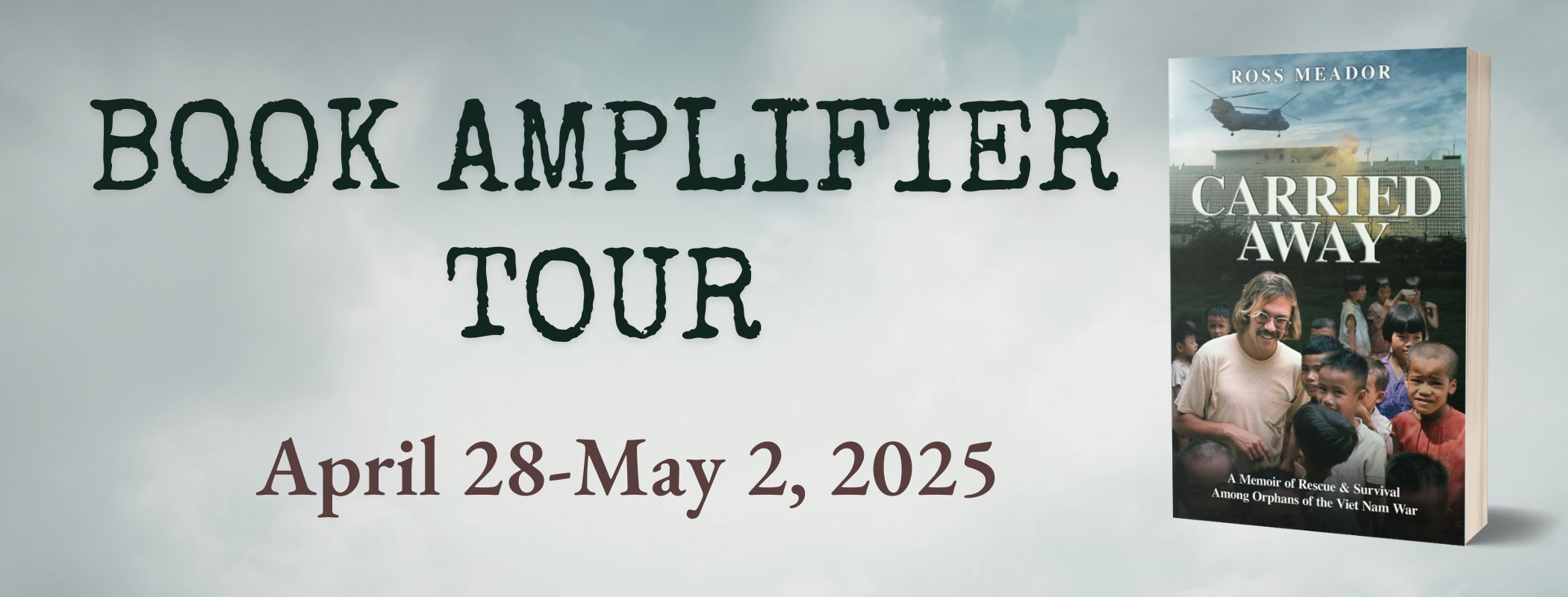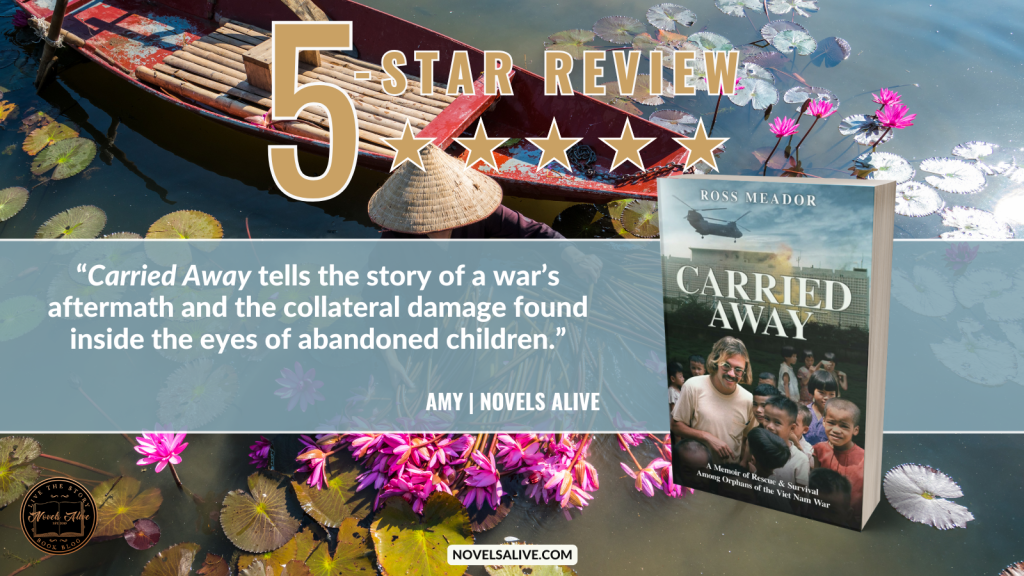

Publication Date: March 22, 2025
“A City in Crisis, a Mission of Mercy”
As the Vietnam War reached its violent conclusion in April 1975, Saigon—now Ho Chi Minh City—was spiraling into collapse. In the final days before its fall, the U.S. government, military, and a patchwork of civilian volunteers launched Operation Babylift, a chaotic, high-stakes effort to evacuate thousands of orphaned children from the war zone. The goal: to get as many of them as possible onto planes headed for the U.S. and other countries before the city was sealed off forever.
In Carried Away: A Memoir of Rescue and Survival Among the Orphans of the Viet Nam War, Ross Meador shares his personal account of this historic mission. At just 19 years old, Ross had traveled to Vietnam with no formal training or diplomatic support—only a burning need to help. He arrived with a one-way ticket and $500 from a small nonprofit and soon found himself living among the very children Operation Babylift would later seek to rescue. When the city fell into chaos, Ross was already embedded within local orphanages and stepped into an informal but essential role in coordinating last-minute evacuations.
This memoir offers a rare, deeply human view of the mission, seen through the eyes of someone who wasn’t a policymaker or soldier, but a young man driven by purpose.

When thinking of the turbulent years surrounding the Vietnam War, many people tend to focus on the political aspects and the anti-war protests.
However, Ross Meador illustrates the plight of orphans in Carried Away, a memoir of his experiences from 1974-1975 and Operation Babylift.
Meador recounts his impressions of the orphanages in Vietnam—horribly crowded with few resources. Showing wisdom far beyond his age of 19, he uses a camera to document the children’s struggles. Those images, many included in the story, then become the catalyst for a massive effort regarding international adoptions.
In recalling his experiences with the war orphans, Meador’s tone is often raw and full of emotion. Not only does he make an impact on their lives, but they do the same for him.
He also recounts the rising opposition to Operation Babylift from within the United States that sparked a debate very similar to the one in recent years about Ukrainian orphans.
Carried Away tells the story of a war’s aftermath and the collateral damage found inside the eyes of abandoned children.

 Ross Meador is a passionate advocate for children and families. Growing up during the Vietnam War, Ross was profoundly moved by the suffering of the Vietnamese people, particularly the plight of war orphans. At just 19 years old, armed with a one-way ticket and $500 from a small group called Friends of Children of Viet Nam (FCVN), he traveled alone to Saigon, eager to make a difference.
Ross Meador is a passionate advocate for children and families. Growing up during the Vietnam War, Ross was profoundly moved by the suffering of the Vietnamese people, particularly the plight of war orphans. At just 19 years old, armed with a one-way ticket and $500 from a small group called Friends of Children of Viet Nam (FCVN), he traveled alone to Saigon, eager to make a difference.
By the time he was evacuated from the roof of the US Embassy in Saigon on April 30, 1975, Ross and FCVN had delivered thousands of dollars in food and supplies to orphanages throughout South Viet Nam. They also found families for hundreds of orphans, most of whom were evacuated in Operation Babylift, which is now recognized as the largest international adoption event in history and one of the most significant humanitarian efforts of in the 20th century.
After leaving Viet Nam, Ross started a new child welfare project in South Korea and, after finishing college, he worked with the International Mission of Hope in Calcutta (now Kolcata), India. Later he attended law school at UC Berkeley and spent his legal career practicing international law. He now travels frequently, but is based in Southern California, where he is close to his three children, Amy, Leah, and Daniel.
In 2003, Friends of Children of Vietnam was nominated by Congressman Tom Tancredo for the Presidential Medal of Freedom, our nation’s highest civilian award. In 2005, the group was nominated for a second time by Senator Diane Feinstein. The same year, Ross was awarded the Heather Constance Noone Memorial Award for “Extraordinary Actions on Behalf of the Vietnam Babylift.”
Ross Meador’s dedication to the cause of orphaned children is evident not only in his professional pursuits but also in his personal journey, making his story a powerful testament to the enduring spirit of compassion and hope.
















